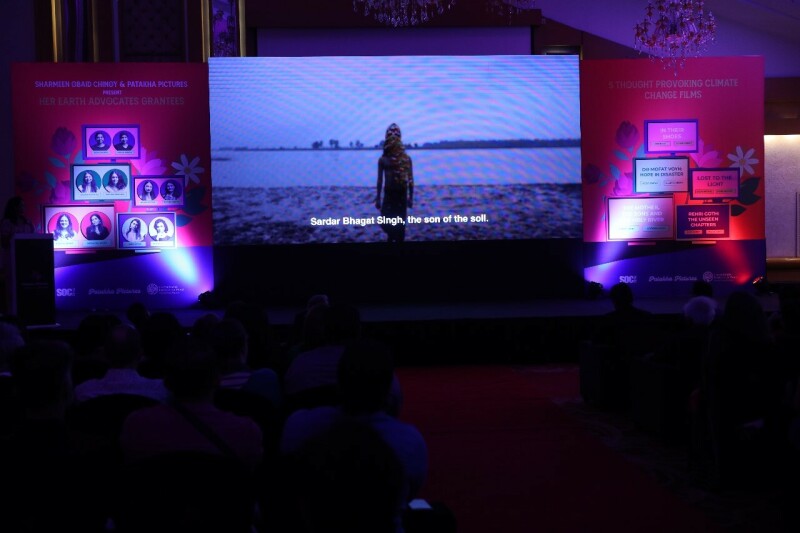When Vogue France says 'yes to the headscarf', it doesn't mean all headscarves
Vogue France faced a barrage of criticism on social media after it shared an Instagram photo of actor and model Julia Fox with the caption "yes to the headscarf" on Friday. Netizens highlighted the double standards and irony of the praise given that the publication is from France — a country that has prohibited the wearing of Islamic headscarves and face coverings.
This also isn't the first time netizens have pointed out a double standard when it comes to head coverings in the West.
French Vogue shared a picture of the American celebrity wearing a piece of cloth around her head and captioned it with "yes to the headscarf". The caption attracted criticism from many netizens in the comment section and has since been removed from the Instagram post.
"Yes to the headscarf when it is not a Muslim wearing it huh?" one user commented.

"In France wearing a hijab is illegal, but a headscarf is chic," said another user.

Rawdah Mohamed, a hijab wearing fashion editor at Vogue Scandinavia, also commented on the post. "Oh the irony of it all!" she said.

"The irony of Vogue France promoting a headscarf on a white woman while Muslim women in hijab are banned from public life," read a comment.

"Double standard nonsense! Such an oxymoron," called out one user.

France prohibited the wearing of Islamic headscarves in state schools in 2004. In 2010, it banned the niqab, the full-face Islamic veil, in public places such as streets, parks, on public transport and in administrative buildings. in April 2021, there was widespread outrage on social media after the French senate voted to ban the hijab for Muslim women under the age of 18 — something that netizens haven't forgotten yet.
"'Yes to the headscarf' unless it’s on Muslim women right Vogue France? The gall to post this when French senators voted to ban the hijab," tweeted a user.
According to CNN, last week, the French senate also voted to ban hijabs for female athletes, although the measure is yet to be voted on in France's lower house.
Vogue France's caption comes at a time when Muslim social media was already in the midst of highlighting how wearing balaclavas has become popular in mainstream fashion in the West whereas Muslim women are criticised for choosing to cover their heads in the name of religion. Many Muslims have called the acceptance of balaclavas a "double standard", questioning why covering one's head is okay for fashion but not for religion.
“Head coverings are cool and fun unless you’re a hijabi Muslim woman, and it’s banned in governments like France..,” quoted social media platform Muslim.
"Funny isn’t it, how when it’s a white girl in a balaclava it’s fashion but when it’s a Muslim girl in a hijab it’s oppression. Very funny indeed," tweeted one user.
"Seeing articles on the balaclava trend and then seeing articles about teachers getting removed from classrooms for wearing hijabs requires gymnastics-level cognitive dissonance," read another tweet.
Many argued that bias towards certain kind of head coverings shows how Islamophobia is still an underlying issue in many societies — prejudice against Muslims or Islamic practices makes the acceptance of the hijab less prevalent.
The popularity of head coverings as fashion accessories comes at a time when many Muslim women are still fighting for bodily autonomy and freedom to wear whatever they like, whether it's a headscarf, niqab or any other piece of clothing.
Practicing or representing ones religion through a garment does not harm anyone. It's time to give the hijab the same acceptance as a balaclava or stylised headscarf. The double standard in approving of the scarf if it's worn by some people and seeing it as a sign of oppression if it's worn by others is laughable and sad. We wish the editors at Vogue France had the self-awareness to realise that their post was in terrible taste.
Take a lesson from Vogue France, dear world and say "yes to the headscarf" — all headscarves.














Comments